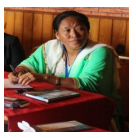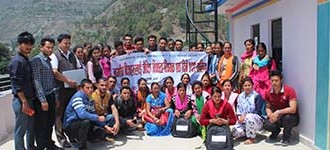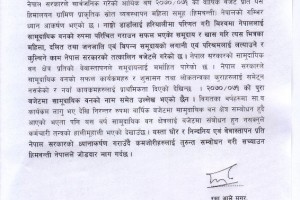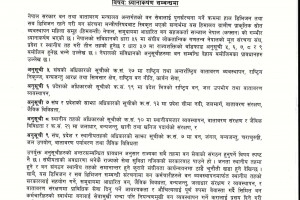
Name: Bhumisari Ale
Year of Birth: 2030 (1974)
Age: 42
Location: Devchuli-7, Nawalparasi District
Education: School Leaving Certificate (SLC)
Contact Number: +977 9845333337
Introduction:
Bhumisari Ale was just a young girl from a rural family in Nawalparasi who was married off by her parents at the age of seventeen; similar to the fates of many young girls in Nepal. Her family started looking for a husband for her at such a young age as it was important for her parents to be seen as having fulfilled their responsibility in the eyes of their society. However, there was one problem: Bhumisari was in love with her classmate, who was fortunately the same cast as her. Unfortunately, this did not work out and she approved of her parents’ decision and got married to a man named Lal Bahadur Ale Magar; a man twice as old as she was when she was only eighteen years old.
Education:
Bhumisari Ale completed her education until the 12th Grade and passed the School Leaving Certificate (SLC) at the age of seventeen; which is the final examination of secondary school in Nepal. Due to the responsibilities that came with getting married, Bhumisari was unable to continue her reading and writing. She became busy with household activities and looking after her family.
Family Life:
After two years of being married, Bhumisari gave birth to a baby girl named Isha. Two years after the birth of Isha, the couple had a baby boy named Jivan. Today, Isha is completing her Bachelors of Business Studies (BBS) in Nursing in India and Jivan is studying Engineering in Kathmandu Valley.
In order to fulfill family responsibilities, Bhumisari’s husband; Lal Bahadur Ale Magar had migrated to India. Since his Father had retired from the Indian Army, Lal Bahadur called him to Nepal from India and later on, came back to Nepal himself. Unfortunately, within two years, his Father passed away and a year later, so did his Mother. These series of events led to Lal Bahadur to take up more family responsibilities and he therefore, started farming. The couple is satisfied with their farming and the agriculture has made it easy for Bhumisari and her husband to earn an income and provide for their family.
Passion/Career:
Even though Bhumisari was happy with her way of living, she had a passion for learning more about how to help excluded women groups in rural communities across Nepal. One day, she was approached by the Himalayan Women’s Natural Resource Management Association (HIMAWANTI) and invited to their office.
UN-women/SABHA and consortium partners provided a three-day Leadership Training to Bhumisari in August, 2016. Later on, she was given the opportunity to participate in Trainer of Leader (TOL) training on Gender in the Nagarkot District. She was trained to become a trainee. It had become apparent to many that Bhumisari was especially interested in political, gender, social work and local level planning processes.
Bhumisari Ale had realized that she was weak and poor, especially after seeing how active Western participants were in leadership. This motivation led her to return home on September 26th, 2016 where she saw herself becoming a strong woman leader for her community. Bhumisari shared her Parbati Tiwari and District Project Coordinator; Sanjeet Ale Magar.
Conclusion:
Today, Bhumisari Ale is playing a vital role as a leader in her society. She has participated in many meetings, including the Ward Citizen Forum meeting, where she dramatically increased women representation. Bhumisari is working towards becoming a community leader. Her feeling of being weak has turned into confidence. Bhumisari has become a coordinator in Devchuli-7 in Nawalparasi District since December, 2016. She has facilitated many income generating activities for women in her community. There used to be only male coordinators in the Ward Citizen Forum meetings. However, Bhumisari is making history by becoming the first woman coordinator in Nawalparasi District, Nepal. This is a message to many women out there who want to help their communities that gender equality is not impossible to achieve; there just needs to be dedication and patience.




